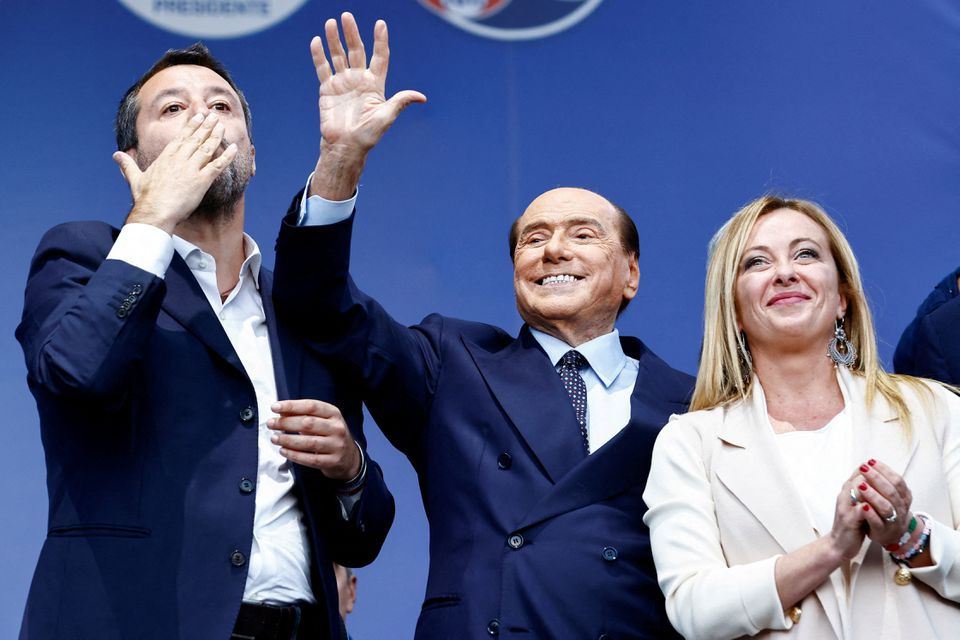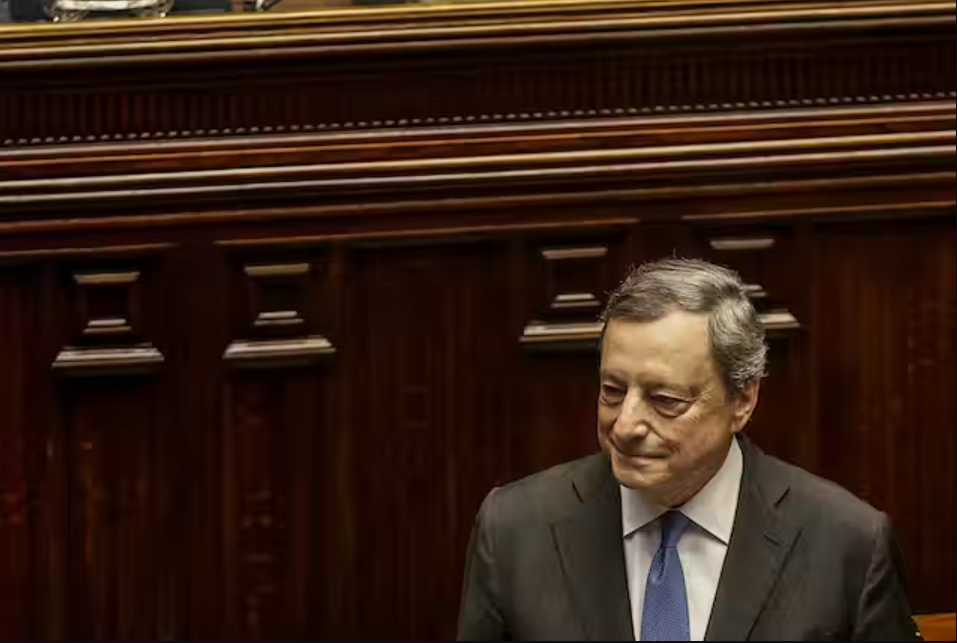Italy and Russia: Moscow in the Mediterranean
- Andrew Gaboury
- Sep 29, 2022
- 5 min read
Italian politics is often fraught with conspiracy, back-biting, and snap elections. This current election season in Italy is no different. A contributing factor exacerbating conditions is Russia; both through the effects of the war in Ukraine and Russia’s habit of funnelling money to political parties that they believe will destabilise potential adversaries. Italian politics doesn’t need interference from Moscow to stay interesting but the added foreign element has shaped the electoral landscape.
The Mario Draghi government began in early 2021 as a national unity government. As a European technocrat, Draghi was charged with the rollout of the COVID-19 economic response in Italy. The country had been under a series of moderate governments after the Eurozone Crisis of 2008-2009 which have mostly focused on European integration, the migrant crisis, and since 2020 the COVID-19 pandemic. However, the stresses of the pandemic led to political instability with parties that had previously agreed on national strategies suddenly more willing to break consensus in order to force resignations and elections.

This is exactly what happened in July 2022. Until that time, the Draghi government was supported by the major political parties, ranging from the Lega Nord to the 5 Star Movement (5SM) to the Democratic Party. Following a disagreement over economic stimulus and benefits, 5SM declared its intention to withdraw from the ruling coalition. As the largest political supporter of the Draghi government, Draghi was forced to resign and called for snap elections on 25 September.
Thus, the political landscape of Italy is characteristically muddled. The major parties going into the election have differences on a wide-range of policies, however, Russia remains both a topical and emotional issue. In the lead-up to the Russian invasion of Ukraine, official Italian policy was to call for a diplomatic solution. With the onset of military operations, Italy under Draghi declared its support for the Ukrainian government, authorised arms shipments, and generally fell in line with European sanctions on Russian goods.
However, all was not well. Italy, like many European countries, is largely dependent on Russian energy imports. The sanctions are hurting Russia deeply but adhering, or even expanding, them in the energy sector also hurts Europe. The Lega Nord was concerned with cutting Russia completely from the Italian economy.
"As energy prices rose and inflation became almost unbearable, Italians began asking if their support for Europe and opposition to Russia was causing them more hardship than they could handle."
As energy prices rose and inflation became almost unbearable, Italians began asking if their support for Europe and opposition to Russia was causing them more hardship than they could handle. With voters going to the polls, Italian political parties are trying to find a way to stay tough on Russian aggression in Ukraine while also avoiding taking actions that will hurt the Italian economy.
This leads to a major opening in Italian politics that Russia has been cultivating for years. As far back as 2018, far-right political parties in Italy, namely Lega Nord, were accused of taking Russian money. The investigations from Buzzfeed and Italian newspaper Repubblica in 2019, revealed shady dealings involving Italian businesses, politicians, and energy interests all working to increase Russian influence in Italy. An alliance between Lega Nord and United Russia also underpins the overlap. The prospect of a far-right coalition victory in upcoming elections means that Russia may have more sway in Italian affairs. This is not unique to Italy as United Russia has alliances with far-right political parties in other European countries such as Germany, France, and Spain.
The wrinkle is Ukraine. While Italy is taking a turn towards Euroscepticism, it remains largely opposed to Russia’s war in Ukraine. As several parties have professed a desire to rethink sanctions, the leading party in the polls, Fratelli d’Italia, has expressed support for the Western position of sanctions against Russia and military support for Ukraine.
This all goes to show how confused the situation is in Italy. Typical splits between socialists, conservatives, Atlanticists, and Eurosceptics fail to hold true as voters are seeking a series of outcomes that no one coalition can provide. How can Italians avoid freezing in the winter from the lack of Russian energy created by sanctions, while also supporting Ukraine with weapons and protecting Italian social values and promoting local Italian economic interests? The short answer is that it is an impossible equation to solve.

The far-right coalition of Fratelli d’Italia (FdI), Forza Italia (FI), and Lega Nord (LN) won the elections on September 25. As expected, this right-wing collection of colourful characters with governing proposals involving the limitation of European power in Italy, restrictions on immigration, and clashes over Russia policy has prevailed over centrist and left-wing parties. The meteoric rise of Georgia Meloni for the FdI has been a shock to the system. She has succeeded in returning a hard-right government to power in Italy for the first time since World War II. Meloni’s past comments on fascism, immigration, and authoritarianism has terrified many in Rome, Brussels, and across Europe. That a far-right leader, known for praising Adolf Hitler and Benito Mussolini, espousing breaking from Brussels, and supporting regressive social values can become the leader of a major European nation is a cautionary tale for all the continent.
As for foreign affairs, the FdI is pro-NATO while coalition partners, Lega Nord, is more ambivalent. Given LN’s documented ties to Russia, the silence from LN regarding the Kremlin’s attack on Ukraine is telling. It’s unclear how these competing policy visions on Russia would work in coalition as cabinet posts are handed out over the coming weeks.
"The meteoric rise of Georgia Meloni for the FdI has been a shock to the system. She has succeeded in returning a hard-right government to power in Italy for the first time since World War II."
The far-right of Italy has already exceeded the electoral successes of Marine Le Pen’s National Rally in France and Vox in Spain by building actual ruling coalitions. The best corollary would be to the successes of the British Brexit campaign. A powerful assemblage of personalities and political parties with the concerted goal of limiting the power of Brussels in Italy. Coupled with fascistic and authoritarian elements, the Italian far-right is primed to destabilise Italian and European politics for the foreseeable future.
Russia knows that this election in Italy will be chaotic and probably not solve the underlying instability in Rome. That is why, regardless of who becomes the Prime Minister, Russia will keep applying pressure on the issue of energy and continue supporting far-right parties. As long as the conversation is about Italian autonomy, the West gets more divided. When energy costs are skyrocketing and supplies are low, Moscow is betting that Italians will vote for their own short-term self-interests over continuing to aid Ukraine.
The recent mobilisation order from Moscow is also meant as a warning to Europe. Russia is stating that it’s prepared for the long-haul, prepared to fight this war as long as is necessary. The Kremlin is betting that Europeans lack the stomach for prolonged conflict and that their aid to Ukraine will ebb as winter closes in and energy supplies dwindle. With several political parties on the Kremlin’s payroll, the discourse about Russia and its interference will remain as well.

Italy could be the canary in the coal mine of European politics. A technocratic government falling to a Russian-backed coalition that softens sanctions and eases support for Ukraine is exactly what Moscow wants. If this instability leads to further Italian elections and a revival of talk of strengthening ties with Russia, then all the better for President Putin. As Moscow’s military strategy fails to conquer Kiev, their only hope is to weaponize the Western political process. The Italian crisis highlights this and illustrates a warning to the rest of the continent.
Written by Andrew Gaboury.
Edited by Wade McCagh.
.jpg)